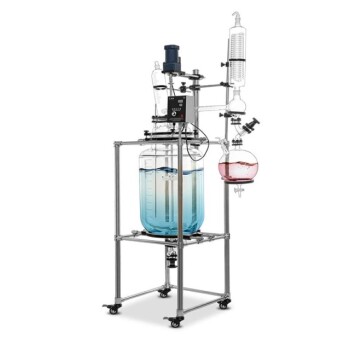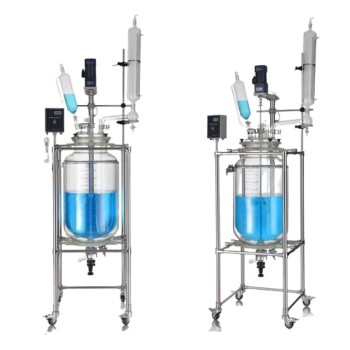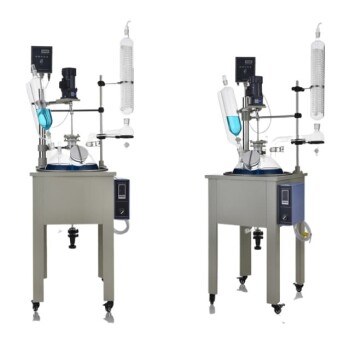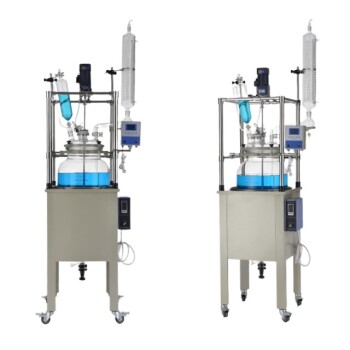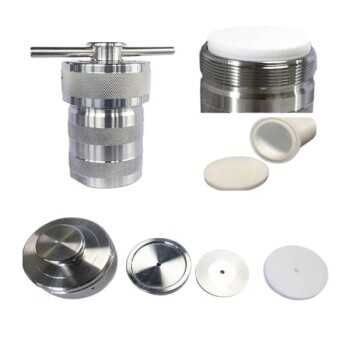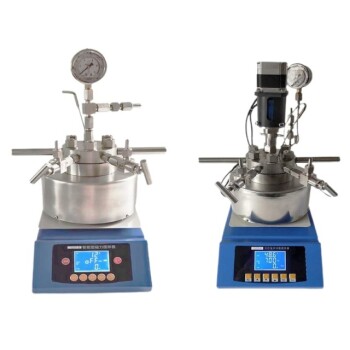A jacketed glass reactor is a versatile piece of equipment widely used in laboratories, chemical industries, and pharmaceutical settings. Its primary function is to facilitate chemical reactions under controlled conditions, particularly those requiring precise temperature regulation. The reactor features a double-layered glass vessel with a jacket that allows heating or cooling fluids to circulate, ensuring uniform heat exchange. This makes it ideal for processes like synthesis, distillation, reflux reactions, extraction, and purification. It is also used in research applications such as biofuel production and electrochemistry, as well as in the development of new materials and pharmaceutical compounds. Its design ensures energy efficiency and adaptability to various industrial and scientific needs.
Key Points Explained:

-
Primary Applications of Jacketed Glass Reactors:
- Chemical Synthesis: Used for synthesizing new materials and chemicals in fine chemical plants and pilot plants.
- Pharmaceutical Production: Essential for developing and producing pharmaceutical compounds under controlled conditions.
- Laboratory Research: Widely employed in scientific research, including biochemistry, advanced synthetics, and modern chemistry experiments.
-
Temperature Control and Versatility:
- The jacketed design allows for precise temperature regulation, making it suitable for reactions requiring specific thermal conditions.
- The jacket circulates heating or cooling fluids, ensuring uniform heat exchange with the vessel walls.
- This feature is critical for processes like distillations, reflux reactions, and extractions.
-
Energy Efficiency:
- The insulation provided by the jacket reduces the energy required to maintain the desired reaction temperature, making it an energy-efficient solution for industrial and laboratory use.
-
Industrial and Research Applications:
- Chemical and Pharmaceutical Industries: Used for large-scale production of chemicals and drugs, as well as for environmental testing.
- Research Applications: Applied in biofuel production, electrochemistry, and the development of advanced materials.
- Processes Supported: Includes filtration, purification, stirring, evaporation, mixing, dissolving, and extraction.
-
Design and Customization:
- Available in various shapes, sizes, and qualities to accommodate different types of chemical reactions and industrial needs.
- The glass-lined construction ensures compatibility with a wide range of chemicals and materials.
-
Advantages for Equipment Purchasers:
- Durability and Compatibility: The glass construction is resistant to corrosion and chemical reactions, ensuring long-term usability.
- Scalability: Suitable for both small-scale laboratory experiments and large-scale industrial production.
- Precision and Control: Enables precise control over reaction conditions, which is critical for achieving consistent and high-quality results.
- Energy Savings: Reduces operational costs by minimizing energy consumption during temperature-sensitive processes.
By understanding these key points, purchasers can evaluate how a jacketed glass reactor aligns with their specific needs, whether for industrial production, pharmaceutical development, or advanced scientific research.
Summary Table:
| Feature | Description |
|---|---|
| Primary Applications | Chemical synthesis, pharmaceutical production, laboratory research |
| Temperature Control | Precise regulation via heating/cooling fluid circulation |
| Energy Efficiency | Insulated jacket reduces energy consumption |
| Industrial Uses | Large-scale chemical/drug production, biofuel research, electrochemistry |
| Design & Customization | Available in various shapes, sizes, and glass-lined construction |
| Advantages | Durability, scalability, precision, and energy savings |
Ready to enhance your lab or industrial processes? Contact us today to find the perfect jacketed glass reactor for your needs!

